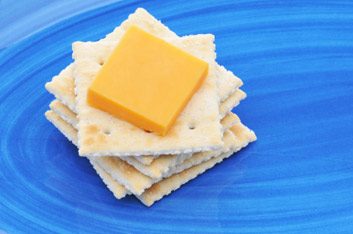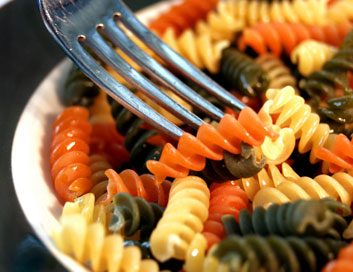
1. Eating dessert every day
Indulging your sweet tooth every day may actually help you keep your weight in check by reducing your cravings for the foods you love. Of course, moderation is key. To keep weight down, Vancouver-based dietitian Jessica Begg suggests that 80 percent of your daily calories come from foods recommended by Canada’s Food Guide. That leaves the other 20 for treats such as cookies, chips and cocktails. “[It’s] the equivalent of a small dessert every day,” she says.

2. Getting less than eight hours of sleep
If you find that you’re waking up well-rested after less than eight hours, don’t worry about it, says Helen Driver, Kingston, Ont.-based sleep researcher and president of the Canadian Sleep Society: that might be the amount of sleep that works best for you. “Some people may be more efficient sleepers and get what they need in a shorter amount of time,” she notes. “Everyone wants to fit into a normal curve, but if you’ve had four or five hours of sleep and you can get up and function during the day, then you don’t have a problem. You can’t force yourself to sleep if you don’t need it.”

3. Eating fat
Long-lived people don’t necessarily eat low-fat diets. In Canada, our average fat intake has dropped almost 15 percent in the past decade and yet obesity rates are soaring. “‘Reduce fat’ is not necessarily great advice,” says researcher David Buettner, author of The Blue Zones: Lessons for Living Longer from the People Who’ve Lived the Longest. The secret is to eat the right kinds of fat-not trans or saturated, but heart-healthy unsaturated and omega-3s.
Try this: Switch from butter to olive or canola oil. Instead of eating crackers, snack on a small handful of nuts such as raw almonds or walnuts.

4. Snacking between meals
Snacking is fine and may actually help tkeep your weight down-as long as it’s conscious.
“For some people, snacking is better and for others it’s a catastrophe,” says Dr. Arya Sharma, chair for Cardiovascular Obesity Research and Management at the University of Alberta.. That’s because some snackers are better at planning ahead while others are more impulsive and head straight to the vending machine when hunger strikes. The key to healthy snacking is to nosh in a controlled way and not to graze just because you’re feeling peckish, says Sharma. If you know you need to eat something between meals, make sure you pack a healthy snack, such as a piece of fruit or handful of nuts, in your briefcase or purse.

5. Consuming carbs
Eating a diet containing a moderate amount of calories from carbohydrates may help you maintain a healthy body weight. A study in the Journal of the American Dietetic Association examined Canadians’ dietary patterns and observed that people who ate 47 to 64 percent (290-310 g) of their calories per day as carbohydrates were less likely to be overweight or obese, compared to those consuming a lower percentage of carbs. Diets that are too low or too high in carbohydrates are harder to maintain, says lead researcher Anwar Merchant, associate professor of epidemiology at the University of South Carolina.
Related:
• 6 foods you thought weren’t healthy but are
• 5 myths about osteoperosis
• 5 habits you thought were healthy but aren’t
